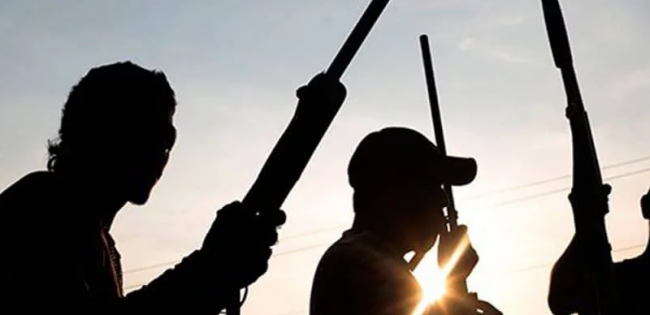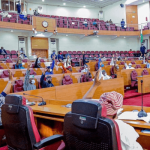By Abiodun Sanusi
Between July 2022 and June 2023, 3,620 people were abducted in over 582 kidnapping incidents in the country, with a reported ransom demand of at least N5billion and an actual ransom payment of over N302million, a figure that could be higher due to underreporting.
An SB Morgan intelligence report released on August 23, 2023, entitled, “The Economics of Nigeria’s Kidnap Industry: Follow the Money,” disclosed these figures.
The Nigeria Police Force and the military high command – the Defence Headquarters, however, have gone silent over the heart-wrenching situation, while security experts called on the Office of the National Security Adviser currently headed by the former Chairman of the Economic and Financial Crimes Commission, AIG Nuhu Ribadu (retd.), to declare a state of emergency to curb the disturbing situation.
As Nigeria faces security crises across the six geopolitical zones, Boko Haram, Islamic States of West Africa, Ansar terrorists, bandits, sea pirates, and armed separatist agitators – the Independent People of Biafra, and all other violent groups, take part in kidnapping for ransom, even with the country’s struggling economy, rising inflation, and high unemployment rates.
The PUNCH reports that civilians bear the brunt of this horrifying trend, accounting for 430 fatalities. Security agents and kidnappers themselves suffered 19 and 121 deaths, respectively. The inability of security agencies to effectively curb this menace is evident, as even the killing of kidnappers has not deterred potential abductors.
The SB Morgan intelligence report delves into the harrowing statistics, motivations, and complexities of the growing epidemic. The report unveils a striking correlation between Nigeria’s struggling economy, rising inflation, and soaring unemployment rates and the exponential growth of the kidnap-for-ransom industry.
“Between July 2022 and June 2023, 3,620 people were abducted in 582 kidnap-related incidents in the country, with a reported ransom demand of at least N5 billion and actual ransom payments of N302 million. However, this figure could be higher due to underreporting.
“Kidnap dynamics differ between individual and community cases, with less secrecy in larger-scale abductions. In some instances, kidnappers opt for non-monetary ransom, like foodstuff. Notably, the Northwest and Northcentral regions exhibit higher in-kind cases of ransom demands, correlating with Nigeria’s widespread poverty. Additionally, these regions have seen a surge in demands for motorcycles as part of ransom payments,” the report said in part.
It further noted that Catholic priests, previously targeted for their ransom value, encountered 21 abductions during this period.
It further delves into the geographic nuances of kidnapping, identifying Edo State as a state with high ransom demands but minimal returns. Taraba State, however, stands out for high ransom payments, though these numbers stem largely from a single incident. Zamfara, Kaduna, and Niger states were identified as hotspots for kidnapping, often involving mass community abductions. In contrast, Borno recorded minimal deaths, likely due to the sophistication of Boko Haram’s tactics.
It added, “Kaduna was the most dangerous state for priests, who were often kidnapped during services. Abductors demanded around N50 million in the past, but the Church now refrains from disclosing ransom negotiations possibly to avoid encouraging further attacks. Statewise, Edo kidnappers sought high ransoms but received little. On the other hand, Taraba paid the most, primarily due to a single case.
“The Northcentral saw higher ransom amounts demanded, notably in Nasarawa, where targeted abductions yielded maximum ransom with minimal resistance. The South-South’s low ransom payments may indicate efficient police intervention or victim silence. The past year showed a higher likelihood of being kidnapped in Kaduna, Niger, or Zamfara, the three states recording the highest per capita abduction rates and deaths during kidnap attempts. Civilians bore the brunt of kidnap attempts around the country, with 430 casualties, while security agents and kidnappers accounted for 19 and 121 deaths, respectively.”
When contacted, the Force Public Relations Officer, and the Director, Defence Information, CSP Olumiyiwa Adejobi, and Brig. Gen. Tukur Gusau, respectively, did not respond to phone calls, SMS and WhatsApp messages by our correspondent on Wednesday night.
Source: The Punch








